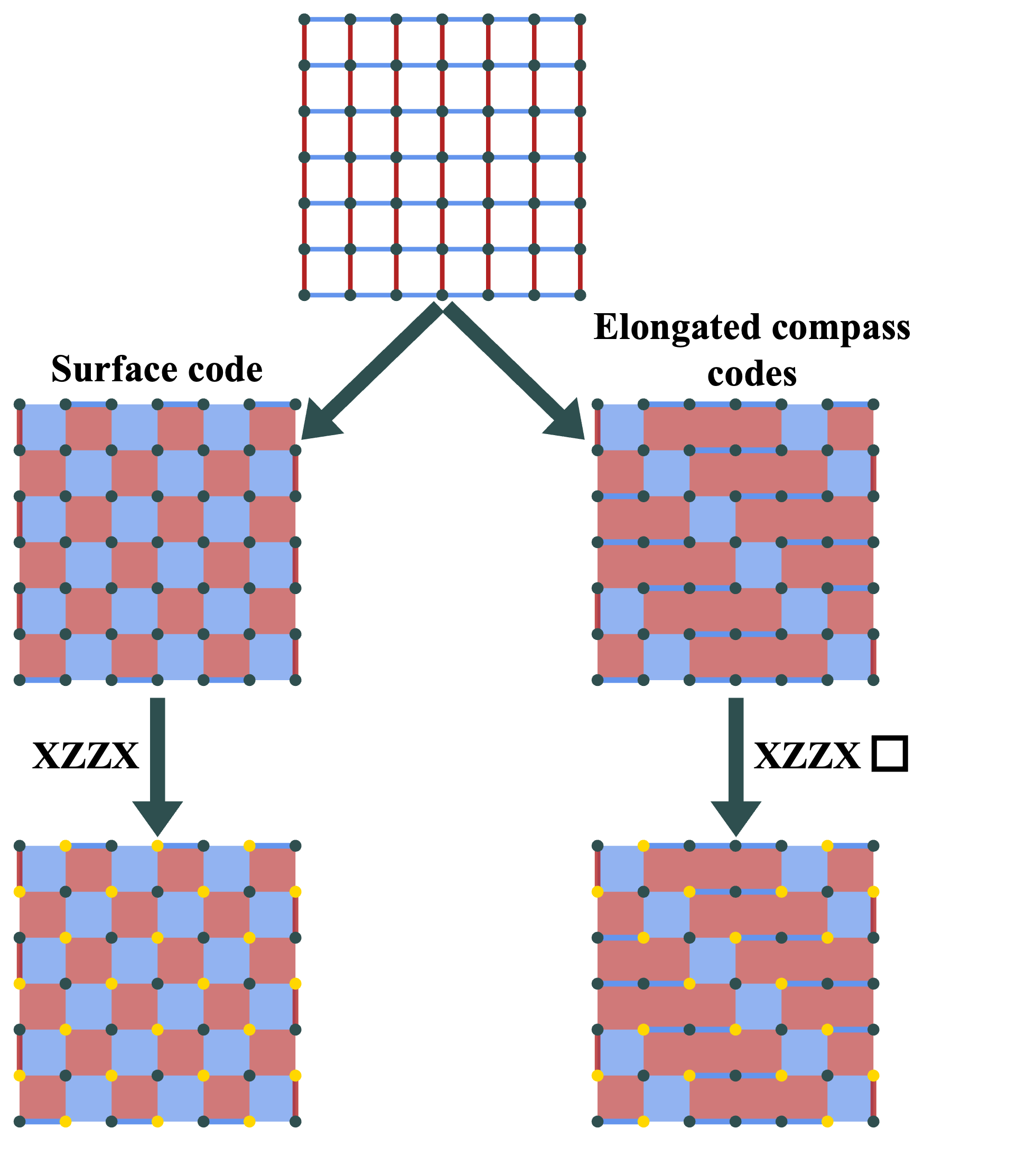December 5, 2024
To build fault-tolerant quantum computers, we need effective quantum error-correcting (QEC) protocols. One approach is to adapt QEC codes to the noise models of quantum computing architectures. Techniques like Clifford deformations and gauge fixing are useful to tailor codes to biased noise models, commonly observed in various quantum systems. For example, the XZZX surface code and compass codes perform better than the standard surface code. In this work, we find Clifford deformations that can be applied to elongated compass codes to further improve their performance under noise models biased toward dephasing. The new codes we create have better thresholds and lower error rates than the original ones. One particular Clifford deformation leads to codes that outperform the XZZX surface code under noise models with moderate biases. Our results are now posted on the arXiv https://arxiv.org/abs/2412.03808
